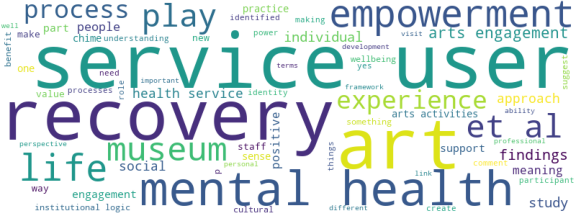| Id | 710 | |
| Author | Jensen A. | |
| Title | Mental health recovery and arts engagement | |
| Reference | Jensen A.; Mental health recovery and arts engagement ;Journal of Mental Health Training, Education and Practice vol:13 issue: 3.0 page:157 |
|
| Link to article | https://www.scopus.com/inward/record.uri?eid=2-s2.0-85045832077&doi=10.1108%2fJMHTEP-08-2017-0048&partnerID=40&md5=3a4b1dea4ceae8c5ce6ed3616b6f073b |
|
| Abstract | Purpose: Arts and cultural activities have been illustrated to be beneficial for mental health service users. The purpose of this paper is to explore the benefits of museum visits and engage in arts activities for mental health service users. Design/methodology/approach: Semi-structured interviews were conducted with 17 mental health service users in Denmark. A thematic approach was used to analyse the data and theoretical lens of sociological theories of institutional logics was employed to explore the findings. Findings: These benefits are perceived to include empowerment and meaning in life, which are two of the core principles of recovery; arts engagement can, therefore, be a useful tool in recovery. The findings also show that the experience of visiting a museum was not always positive and depended upon the interaction with the museum educators. Originality/value: The service users identified arts engagement as creating meaning in life and empowerment, which are two element in the conceptual framework, CHIME (an acronym for: Connectedness, Hope and optimism, Identity, Meaning in life and Empowerment), that describes the human process of recovery. The findings also highlighted that if museums want to engage positively with people with mental health problems and contribute to their recovery then the training of staff and the improvement of institutional approaches to support working with vulnerable people are essential. © 2018, Anita jensen. |
|
| Keywords | Arts and health; Arts engagement; Mental health; Museum/gallery; Recovery |
Wordcloud:



